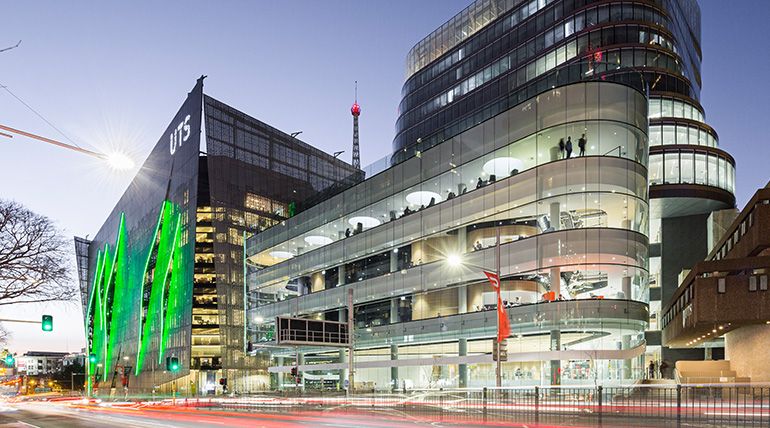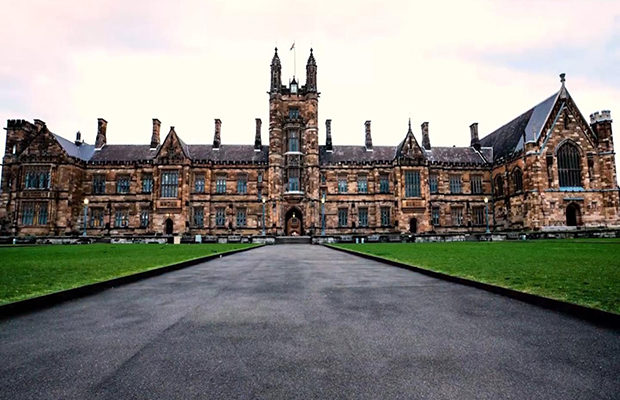Study in Australia
Home to some of the top universities in the world, Australia welcomes 463,643 international students in 2020, making it one of the most popular study destinations in the world.

Australia is a highly developed country with a high-income economy. It also also home to some of the top universities in the world. The 2023 QS World University Rankings placed 5 Australian universities in the top 50 universities in the world university rankings and 14 Australian universities in the top 200 world university rankings. Australia is also one of the most popular study abroad destination for international students.
Resources
Fast track your study in Australia with your O-level / IGCSE or if your A-Level/IB scores do not qualify for admissions to Australian universities.
Discover some of the most popular Australian universities that international students choose to attend and where they are located.
Discover the top 5 reasons why the Australia is one of the most popular study destination among international students.
Frequently Asked Questions
General
For most disciplines, the duration of a bachelor degree programme is 3 years without honours. Students who qualify and/or wish to do the honours year would need to do 1 more year after their 3 year Bachelor degree programme.
Some bachelor degree programmes like Engineering, are 4 years in duration with honours. Bachelor degrees in allied health sciences programmes like Physiotherapy, Dietetics, Occupational Therapy and Speech Pathology are 4 years in duration. Bachelor of Laws (LLB) is also 4 years in duration.
Master degrees are usually between 1 to 2 years in duration.
The Group of Eight (Go8) comprises Australia’s leading research-intensive universities – the University of Melbourne, the Australian National University, the University of Sydney, the University of Queensland, the University of Western Australia, the University of Adelaide, Monash University and UNSW Sydney.
The Go8 is focussed on, and is a leader in, influencing the development and delivery of long-term sustainable national higher education and research policy, and in developing elite international alliances and research partnerships.
The Australian Technology Network of Universities (ATN) brings together Australia’s six real-world universities focused on enterprise, impact and finding solutions to issues facing Australia’s economy and society.
Member universities comprises of Curtin University, Deakin University, RMIT University, The University of Newcastle, University of South Australia, and University of Technology Sydney.
Innovative Research Universities (IRU) is a coalition of eight comprehensive universities committed to inclusive excellence in teaching, learning and research in Australia.
The IRU members are Charles Darwin University, Flinders University, Griffith University, James Cook University, La Trobe University, Murdoch University, University of Canberra and Western Sydney University.
Vocational education and training (VET) in Australia is the study that offers you the opportunity to learn specific and practical job skills. It’s the perfect route for international students who are looking for a quicker path into the workforce and a focus on real-world and industry-based skills.
Admissions
Direct entry to the first year of a bachelor degree programme would require a Year 12 qualification or equivalent from a high/secondary school, e.g. A-level, International Baccalaureate (IB DP), AUSMAT, STPM, OSSD, etc.
If you do not qualify for first year entry, you may consider doing the Diploma or University Transfer Programmes for selected universities which is the equivalent to the first year of studies and transferring to the second year of the degree. Find out more from Pathways to Universities in Australia.
o, you would require at least a year 12 or equivalent qualification to be admitted to a bachelor degree programme in Australia.
However there are pathways like 1 year foundation programmes that you could attend and progress to do a bachelor degree in Australia. Find our more from Pathways to Universities in Australia.
For most bachelor degree programs, you are not required to take the IELTS if you have shown competency in your English in your O-Level or IGCSE results. Programs that require clinical placements like physiotherapy, dietetics, nursing etc, would require you to meet the IELTS requirements.
Applying to Australian universities are through direct applications to the respective universities. Contact us to assist you in applying to universities in Australia.
The main intake where almost all degrees will start is in February/March (Semester 1). Many degrees would also offer a mid year intake in July (Semester 2). Contact us for more information on applying to Australian universities.
This is a very popular option especially for Diploma students who are unable to afford studying and living in Australia for all 3-4 years. The number of years to complete the degree in Australia after transferring from a Diploma is at the discretion of the university’s admissions policies. It is quite common for Diploma holders to receive 1 to 1.5 years of advanced standing and may complete the bachelor degree in Australia in 1.5 – 2 years. Contact us to find out more about your options.
Finances
Estimated tuition fees for Group of 8 universities would range from AUD$40,000 – AUD$52,000 per annum.
Estimated tuition fees for other Australian universities would range from AUD$27,000 – AUD$45,000 per annum.
The Australian Government estimates general living expenses to be AUD$21,041 per year. Based on our student’s experiences, we estimated if you are living in Sydney and Melbourne, we estimate the annual living expenses to be AUD$25,000 a year. If you are living in Perth, Brisbane and Adelaide, we estimate the annual living expenses to be AUD$23,000. The annual living expenses for all other cities would be estimated at AUD$20,000.
Yes, there are scholarships available. Scholarship considerations are usually automatic and based on academic merit.
Student Accommodation and Dining
Most rooms are single rooms either with an ensuite toilet or communal toilet. Rooms with ensuite toilet would cost significantly more.
Most universities offer the option of staying in a catered or self-catered student accommodation. Catered options would significantly more as 3 meals a day are provided by the accommodation. Self-catered accommodation usually provides cooking facilities where students are able to prepare their own meals.
No, it is not mandatory to stay on-campus but it is highly recommended to do so or stay near the campus especially in your first year as an international student. Being unfamiliar with the surroundings as a new student, staying on-campus provides more support and security. It is also a good way to meet new friends from different races, religion and culture.
A popular option is for the university to arrange a registered homestay provider or approved student accommodation that would act as your student guardian.
One of the option is that you must nominate a student guardian. Nominate a parent, legal custodian or relative over 21 years of age as your student guardian. This person must have a visa to stay in Australia for the duration of your student visa or until you turn 18.
Visit the Australia’s Department of Home Affairs for more information.
Employment
Yes. International students enrolled in a full-time degree programme can take up part-time work of up to 40 hours work ever 2 weeks during term time and full-time work during your vacation periods. Exceeding the legal hours may lead to revocation of your student visa and affect your academic performance.
Our advice to students is that working part-time should only be means of reducing the financial burden of your living expenses and experience work culture in Australia. It should not be thought of as means to paying your tuition fee.
Yes. The Temporary Graduate visa (subclass 485) – Post-Study Work stream is for international students who have recently graduated with a degree from an Australian institution. It lets you live, work and study in Australia, temporarily usually from 2 – 4 years depending on your qualifications.


